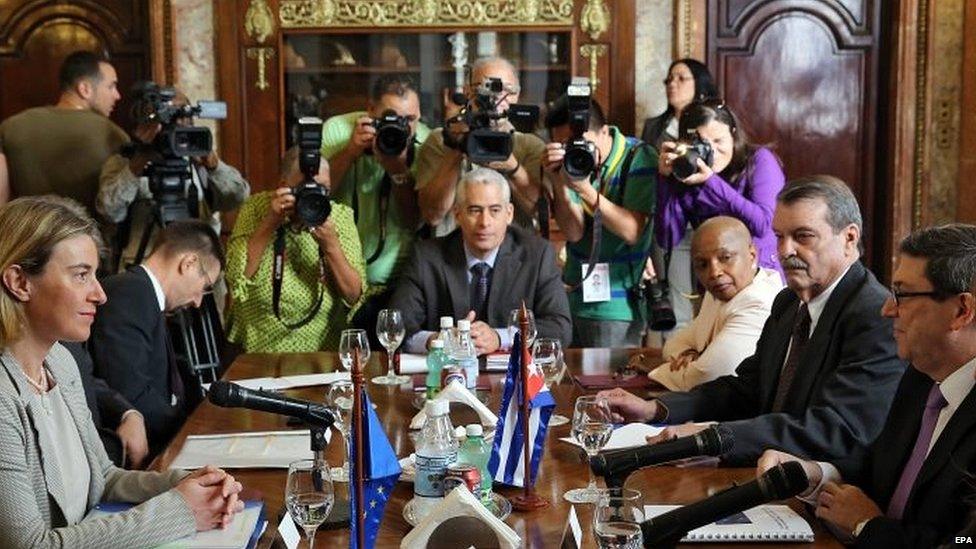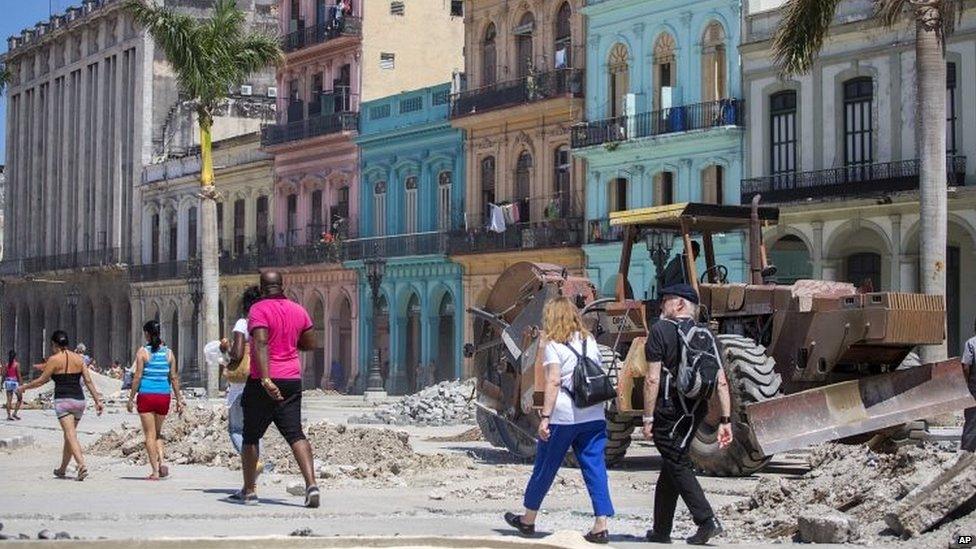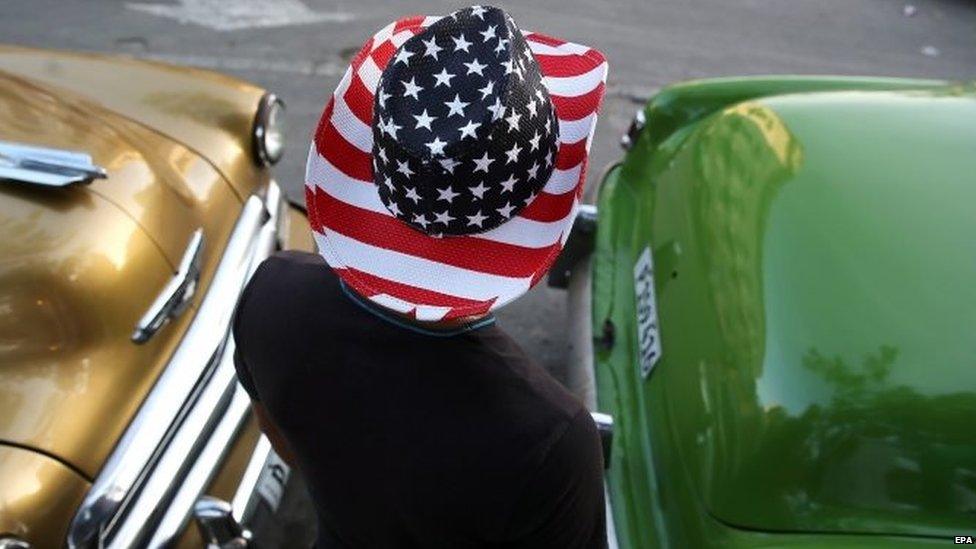Cuba and EU agree to normalise diplomatic ties
- Published

The EU accord marks another achievement for Cuba on the international stage
The European Union and Cuba have signed an agreement to normalise diplomatic relations after two years of talks.
This will allow the 28-member bloc to increase economic co-operation and aid with the communist-run island.
The move comes some eight months after Cuba and the US restored diplomatic ties following a 54-year freeze.
Barack Obama is set to become the first sitting US president to visit Havana for nearly 90 years when he goes there later this month.
The signing in the capital was the culmination of quiet discussions taking place in the background while attention was focussed on Cuba's new ties with Washington.
"This is a historic day for bilateral relations," said the EU's foreign policy chief, Federica Mogherini, who witnessed the signing along with Cuban Foreign Minister Bruno Rodriguez.

Buildings are being renovated in Havana

Cuba is now welcoming some Western cultural events, for example a concert later this month by the Rolling Stones

Cubans have welcomed the visit by the Obamas
The BBC's Will Grant in Havana says the Cuba-EU accord is a major step to putting certain moments of hostility behind the two sides.
Havana objected to the EU's policy of urging political change on the island, and the EU suspended its relations with Cuba after scores of dissidents were imprisoned in 2003.
The deal must now be ratified by the 28 EU member-states.
Some EU nations such as Spain and France never severed ties with Cuba
Mr Obama is to visit Cuba on 21-22 March as part of a broader trip to Latin America.
He will be the first US president to visit Havana since Calvin Coolidge in 1928.
President Harry Truman visited the US-controlled Guantanamo Bay area in 1948, and former President Jimmy Carter has visited Cuba several times since leaving office.
President Obama is expected to meet members of civil society, entrepreneurs and "Cubans from all walks of life".
But Republican presidential candidates Marco Rubio and Ted Cruz, both sons of Cuban migrants, said the visit was a mistake.